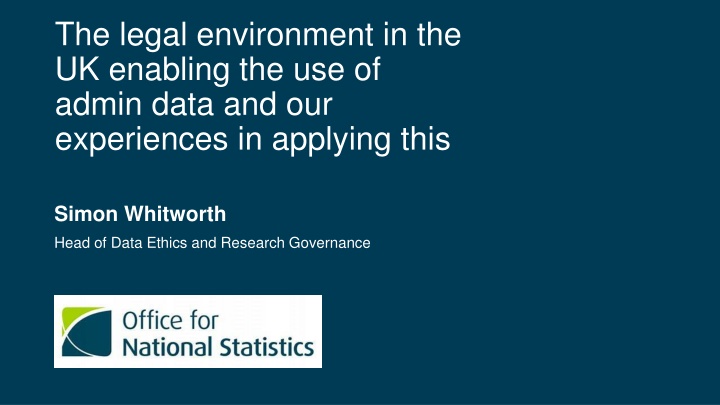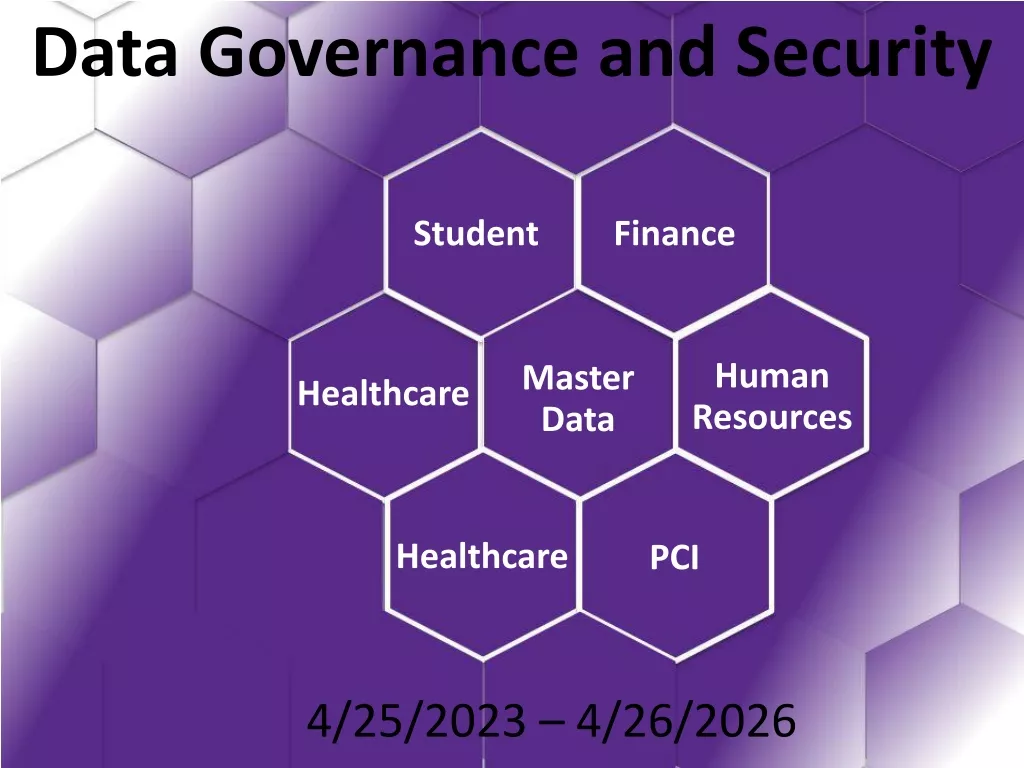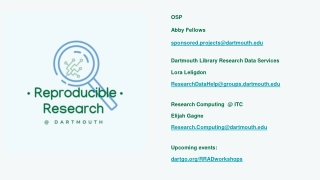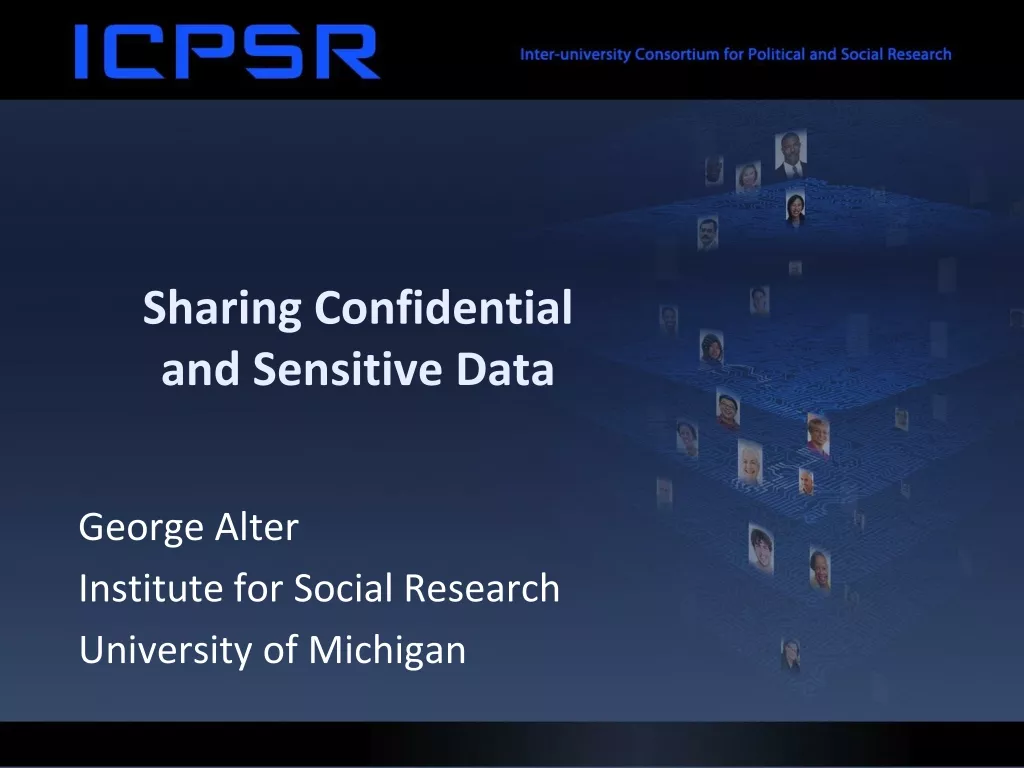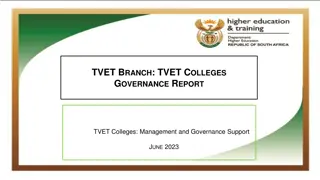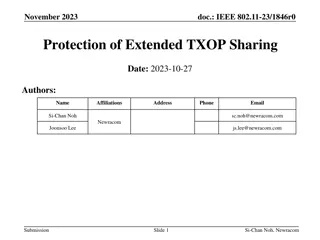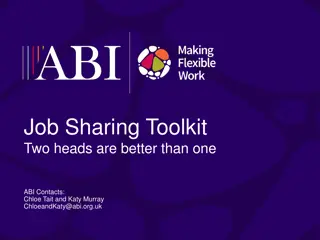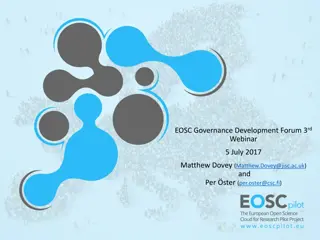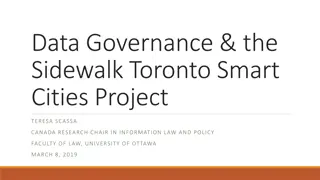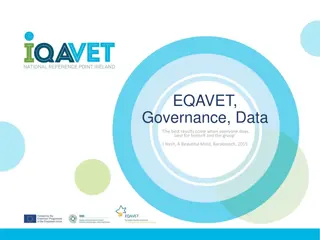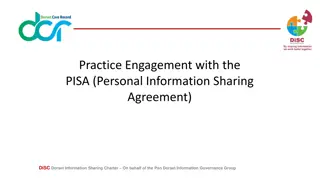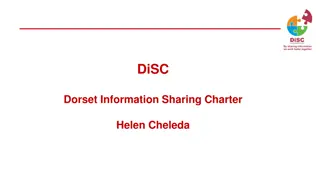Enhancing Data Sharing and Research Governance in the UK
The legal environment in the UK enables the use of administrative data, but there are barriers such as restrictive legislation, cultural reluctance, and lack of efficient access. Efforts are being made to improve data sharing through legislative changes and operational frameworks, aiming to streamline access to administrative data for research and statistical purposes.
Download Presentation

Please find below an Image/Link to download the presentation.
The content on the website is provided AS IS for your information and personal use only. It may not be sold, licensed, or shared on other websites without obtaining consent from the author.If you encounter any issues during the download, it is possible that the publisher has removed the file from their server.
You are allowed to download the files provided on this website for personal or commercial use, subject to the condition that they are used lawfully. All files are the property of their respective owners.
The content on the website is provided AS IS for your information and personal use only. It may not be sold, licensed, or shared on other websites without obtaining consent from the author.
E N D
Presentation Transcript
The legal environment in the UK enabling the use of admin data and our experiences in applying this Simon Whitworth Head of Data Ethics and Research Governance
The UKs largest independent producer of official statistics and the recognised national statistical institute of the UK. Responsible for collecting and publishing statistics related to the economy, population and society at national, regional and local levels. Plays a leading role in national and international good practice in the production of official statistics.
Strategy Strategy 3
Legislation to overcome barriers Legislation to overcome barriers Structural factors Legislation itself Information Sharing Orders were restrictive and time- consuming Minimize respondent burden by using administrative data survey response rates Cultural factors Culture of risk-aversion towards data sharing Data sharing seen to be of secondary importance. Driven by doubts about the public acceptability of data sharing.
Nudges Nudges primary legislation should be sought to provide a generic legal gateway for research and statistical purposes that enables efficient access to, and linkage between, administrative data held by different government departments, agencies and other statutory bodies. The UK significantly lags many other advanced economies in its exploitation of administrative data This reflects both the cumbersome nature of the present legal framework governing the sharing of such data and a cultural reluctance on the part of some departments and officials to data sharing.
Design and operationalisation of the DEA Design and operationalisation of the DEA Codes of Practice (2017-18) and parliamentary approval Draft policy and legal framework (2014-16) Open policy-making (2014-16) Draft legislation (2015-16) Public consultation (2016) Public consultation (Sept-Nov 2017) Government response (March 2018) Parliamentary review (May-June 2018)) 2016 2018 2014 2017 Legislative phase (2016-17) Parliamentary approval (July 2018) Parliamentary review (October-December 2016) Operationalisation from Summer 2018
Digital Economy Act Digital Economy Act Legal clarity A right of access to data for statistical and research purposes Devolved statistics Enable secure data shares with Devolved Administrations to support their statistical needs. Data protection and security Protect the privacy and ensure secure and ethical use of data. Data integrity A duty on data providers to consult statisticians on changes to data systems. Data access for non-government research - Provides a permissive gateway for public authorities to make deidentified data available to researchers from outside government for analytical purposes that are in the public interest.
Collaboration consult with data suppliers and find collaborative solutions. Confidentiality maintain appropriate security controls. Underpinned by Code of Practice Transparency publish information on how we use the Digital Economy Act. Ethics and the law observe highest ethical standards. Public interest seek access to data based on an ability to produce statistics with a clear public interest. Proportionality ensure costs of providing access to data are proportionate to the statistical benefits from using the data.
Successes Successes Greater legal clarity and understanding of what data can be shared and how it can be shared New datasets since April 2019 NHS Digital (health conditions, hospital episodes) HMRC Self Assessment (measuring household income, self-employment analysis) Council tax data (Census, population statistics) Exit checks (migration statistics) Credit reference (financial statistics) Retailers/scanner test datasets (price statistics, retail sales) DWP demographic data (population statistics) HMRC EC sales/VAT (trade statistics) HMRC PAYE (labour market statistics) 43 administrative datasets made available to non-government researchers.
Challenges Challenges Engagement Collaboration takes time Finding the right people to talk to Overcoming different organisational ways of working Capability Understanding the data (what, why, when, how ) Developing new ways of working to meet our legal obligations Building the confidence of departments in the new legislation Communicating the benefits of using a permissive generic legal gateway rather than department specific gateways for enabling efficient research access to linked data
Collaboration Confidentiality Code of Practice Transparency Ethics and the law Public interest Proportionality
Centre for Applied Data Ethics Centre for Applied Data Ethics Ethics training for the research and statistical community across Government, academia and the commercial sector. Developed an self-assessment tool and guidance to enable researchers to consider the ethics of their research. An ethics user support service for the research and statistics community to provide ethics advice at the research design phase. Publish new guidance on cross cutting ethical issues in research and statistics.
Data Ethics Guidance Data Ethics Guidance Geospatial data Public good Synthetic data Machine Learning
simon.whitworth@statistics.gov.uk Or visit our website: https://uksa.statisticsauthority.gov.uk/data- ethics/
